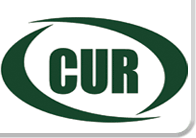Resources
National Science Foundation
CCURI is made possible by an award from the National Science Foundation, Award Abstract #1118679. CCURI is a program within the Division of Undergraduate Education (DUE) at NSF and was funded under the Transforming Undergraduate Education in STEM (TUES) program. Looking for funding opportunities for your STEM projects?
Council on Undergraduate Research
The Community College Undergraduate Research Initiative collaborates closely with the Council on Undergraduate Research (CUR). Working together, these two organizations are committed to working with our nation’s community colleges to help them develop, implement, and disseminate their undergraduate research programs. By sharing resources and programming, we are able to maximize our efforts and reach a broad audience. CUR maintains a section of their website devoted to programs focused on community colleges which you can visit.
Report to the President - Engage to Excel
The Engage to Excel Report was published in through the White House in 2012 through the President’s Council of Advisors on Science and Technology. This report outlines 5 recommendations to transform undergraduate STEM education:
1) Catalyze widespread adoption of empirically validated teaching practices
2) Advocate and provide support for replacing standard laboratory courses with discovery-based research courses
3) Launch a national experiment in postsecondary mathematics education to address the mathematics-preparation gap
4) Encourage partnerships among stakeholders to diversify pathways to STEM careers
5) Create a Presidential Council on STEM Education with leadership from the academic and business communities to provide strategic leadership for transformative and sustainable change in STEM undergraduate education
Genomics Education Partnership
The goal of the Genomics Education Partnership is to provide opportunities for undergraduate students to participate in genomics research. GEP is a collaborative between a growing number of primarily undergraduate institutions, and the Biology Department and the McDonnell Genome Institute of Washington University in St. Louis. Participating undergraduates learn to take raw sequence data to high quality finished sequence, and to annotate genes and other features, leading to analysis of a question in genomics and research publication. GEP organizes research projects and provides training / collaboration workshops for community college, college, and university faculty and their teaching assistants.
CUREnet is a network of people and programs that are creating course-based undergraduate research experiences (CUREs) in biology as a means of helping students understand core concepts in biology, develop core scientific competencies, and become active, contributing members of the scientific community. Through a series of in-person meetings and other activities, CUREnet is assembling individuals with diverse expertise (instructors, researchers, information technology specialists, faculty development / curriculum specialists, education researchers) who represent diverse institutions and varied CURE projects in terms of data type (genomic, phenotypic, ecological).
HHMI Science Education
The Science Education Alliance (SEA) provides faculty members at colleges and universities with opportunities to engage students in research-based curricula early in their academic careers. By doing so, SEA teaches students how to approach scientific problems creatively and critically and prepares them for advanced research opportunities later in their academic careers.
Tiny Earth
Tiny Earth is a network of instructors and students focused on crowdsourcing antibiotic discovery from soil. The mission of the program is two-fold:
First, it seeks to inspire students to pursue careers in science through original laboratory and field research conducted in introductory courses with the potential for global impact.
Second, it aims to address a worldwide health threat—the diminishing supply of effective antibiotics—by tapping into the collective power of many student researchers concurrently tackling the same challenge, living up to its motto “student sourcing antibiotic discovery.”
The Small World Initiative (SWI) is an innovative program that encourages students to pursue careers in science while addressing a worldwide health threat – the diminishing supply of effective antibiotics. Since its inception, SWI has grown rapidly to include more than 250 participating undergraduate institutions and high schools across 38 US states, Puerto Rico, and 14 countries. In addition to expanding SWI on a global scale, we are also developing the infrastructure to allow SWI’s antibiotic discoveries to move forward into R&D programs.
PULSE
PULSE is a joint effort by National Science Foundation (NSF), National Institutes of Health/NIGMS (NIH/NIGMS) and Howard Hughes Medical Institute (HHMI) to stimulate systemic changes within biology departments at all types of post-secondary educational institutions, based upon the findings from the 2011 report Vision and Change in Undergraduate Biology Education: A Call to Action and other similar calls for transformation of undergraduate life sciences education. Visit the PULSE Community page at
Association for the Study of Higher Education
The Association for the Study of Higher Education (ASHE) promotes collaboration among its members and others engaged in the study of higher education through research, conferences, and publications, including its highly regarded journal, The Review of Higher Education. ASHE is committed to diversity in its programs and membership, and has enjoyed extraordinary success in involving graduate students in Association activities.














